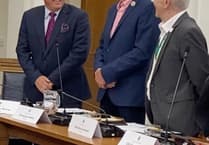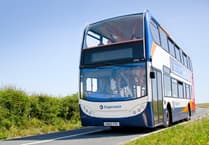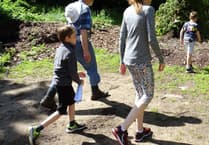AS the wartime favourite Dad’s Army hits the big screen, one World War II hero recounts his fond memories of living alongside the Home Guard right here in Farnham.
It was on the evening of Tuesday, May 14 1940, that the Government sent a pressing message on the radio appealing for males aged between 17 and 65 to put themselves forward for the LDV, Local Defence Volunteers. The name which was later changed to the Home Guard on August 23, 1940, by Winston Churchill.
The Home Guard consisted of those who were already in jobs which were a necessity for the war, such as farmers and doctors and those who were too young or too old to fight. These men were essentially part-time soldiers.
From when the announcement was first broadcasted in May to the end of June the number of volunteers totalled just under one-and-a-half million. This number never fell below one million until the Home Guard was disbanded on December 31, 1945.
He said: “The Home Guard came in for WWII, because there was a threat of invasion. It was very vital and everyone mucked in and said ‘We’re not gonna have that’ and that’s how it came about.
“The men had an interest in keeping things going at home or wherever they were stationed and they would also train with you. It was a case of all working together – men, women and children.
“They used to kid us on a bit. They were people to look up too. There was so many things going on at the time but they always had good humour.”
He noted that every area in the UK had a Home Guard detachment, right up to the Scottish Highlands – collectively making the community feel safer.
While the men volunteered for the Home Guard the women formed rescue squads, became nurses and trained in specific professions which were vital to the war.
Harry’s father, John Frederick Norris, was a member of the Home Guard following his time as a sergeant in the the previous world war: “They were just civilians, just like my father, it was people that you lived and worked with.
“They were all holding down jobs at the same time. If it wasn’t for the older personnel doing jobs like that we would have been in a bad way.
“You can’t imagine now how close everybody was back then. It wasn’t them and us, it was us – it had to be together. I would be interested to know whether anyone knows the guys in the photograph.”
According to the Weybourne resident, the Farnham by-pass came about as a result of the war because the Army were having to go through the town on a regular basis. And due to the narrow roads the vehicles were catching the sides of buildings.
So the Canadians built a road from the Shepherd and Flock through more or less to Farnham railway station, therefore avoiding the town as much as possible.





Comments
This article has no comments yet. Be the first to leave a comment.